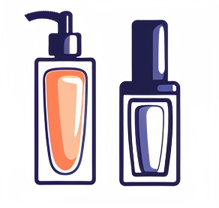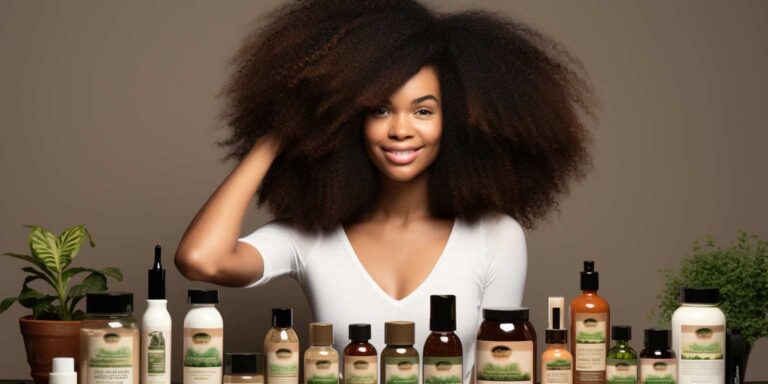The best shampoo for fine oily hair: a comprehensive guide
Key Factors to Consider:
| 1. Ingredients: | Look for shampoos that contain clarifying agents like salicylic acid or tea tree oil, which help to remove excess oil and build-up without stripping the hair. |
| 2. Lightweight Formulas: | Opt for lightweight formulas that won’t weigh down fine hair. Avoid shampoos with heavy oils or silicones, as these can leave a residue on the hair, making it appear greasy. |
| 3. Volumizing Properties: | Look for shampoos that offer volumizing benefits to add body and lift to fine hair. Ingredients like panthenol and rice protein can help plump up the hair strands for a fuller appearance. |
| 4. pH-Balanced Formulas: | Opt for shampoos that are pH-balanced to maintain the health of the scalp and hair. A balanced pH helps to regulate oil production and prevent the scalp from becoming too oily. |
Now, let’s delve into some top recommendations for shampoos that are perfect for fine, oily hair:
- 1. Neutrogena Anti-Residue Formula Shampoo: This clarifying shampoo effectively removes build-up and excess oil without stripping the hair. It’s gentle enough for daily use and leaves the hair feeling clean and refreshed.
- 2. Paul Mitchell Tea Tree Special Shampoo: Infused with tea tree oil, this shampoo invigorates the scalp while controlling oil production. It has a refreshing scent and leaves the hair feeling balanced and revitalized.
- 3. L’Oréal Paris EverPure Volume Shampoo: Formulated with lotus flower extract, this shampoo adds volume and body to fine hair without weighing it down. It’s sulfate-free and gentle enough for color-treated hair.
- 4. OGX Biotin & Collagen Shampoo: Enriched with biotin and collagen, this shampoo strengthens and thickens fine hair while controlling oiliness. It leaves the hair feeling soft, smooth, and voluminous.
Understanding fine oily hair
Fine oily hair can be a challenging condition to manage, requiring special attention and care to keep it looking fresh and voluminous. Understanding the unique characteristics of fine oily hair is crucial for selecting the right products and adopting the most effective hair care routine.
Fine hair refers to strands that have a smaller diameter compared to other hair types. This can make fine hair prone to looking flat and lacking volume. On top of that, when fine hair becomes oily, it exacerbates the issue, making the hair appear greasy and weighed down.
One of the key factors contributing to oily hair is the overproduction of sebum by the sebaceous glands on the scalp. These glands produce an oily substance called sebum, which is essential for keeping the hair and scalp moisturized. However, when the sebaceous glands produce too much sebum, it can lead to an oily scalp and hair.
People with fine hair tend to have more sebaceous glands on their scalp compared to those with thicker hair. As a result, they are more prone to experiencing oily hair issues. Additionally, fine hair’s smaller diameter makes it easier for sebum to travel from the scalp down the hair shaft, further contributing to the oily appearance.
Managing fine oily hair requires a gentle yet effective approach. Using clarifying shampoos that are specifically formulated for oily hair can help remove excess sebum and impurities without stripping the hair of its natural oils. It’s important to avoid overwashing fine hair, as this can stimulate the sebaceous glands to produce more sebum, worsening the problem.
Conditioning is another crucial step in caring for fine oily hair. Opt for lightweight, oil-free conditioners that won’t weigh down the hair or contribute to excess oiliness. Focus the conditioner primarily on the mid-lengths to ends of the hair, avoiding the scalp area where sebum buildup is most prominent.
Styling products can also play a significant role in managing fine oily hair. Choose products labeled as “oil-free” or “volumizing” to add lift and texture to the hair without adding extra grease. Avoid heavy styling creams and serums that can weigh down fine hair and make it appear greasier.
In addition to using the right products, adopting healthy hair care habits can help keep fine oily hair in check. Avoid touching the hair excessively throughout the day, as this can transfer oils from the hands to the hair, exacerbating oiliness. Regularly brushing the hair with a boar bristle brush can help distribute sebum evenly along the hair shaft, preventing it from accumulating at the roots.
How to choose the right shampoo
Choosing the right shampoo can seem like a daunting task with the myriad of options available on the market today. However, by considering a few key factors, you can select the perfect shampoo for your hair type and needs.
First and foremost, it’s essential to identify your hair type. Is your hair oily, dry, curly, straight, colored, or chemically treated? Different shampoos are formulated to address specific hair concerns, so knowing your hair type will help narrow down your choices.
Read the labels carefully. Look for shampoos that are sulfate-free if you have sensitive skin or color-treated hair. Sulfates can strip the hair of its natural oils and color, leading to dryness and fading. Additionally, avoid shampoos containing parabens and phthalates, as these chemicals can be harsh and potentially harmful.
Consider your scalp condition. If you have a dry or itchy scalp, opt for a moisturizing or anti-dandruff shampoo with ingredients like tea tree oil or aloe vera. For those with oily scalps, look for a clarifying shampoo that can effectively remove excess oil and buildup.
Take note of any specific hair concerns you may have. Whether you’re dealing with frizz, damage, or thinness, there’s likely a shampoo formulated to target your particular issue. Look for shampoos enriched with keratin for damaged hair or arginine for thinning hair.
Consider the fragrance and texture of the shampoo. While this may seem less important than its performance, enjoying the scent and feel of your shampoo can make the overall experience more enjoyable. Some people prefer light, floral scents, while others may prefer citrusy or herbal fragrances.
Don’t forget to test the product before committing to a full-sized bottle. Many brands offer travel-sized versions of their shampoos, allowing you to try them out before investing in the full size. This is especially important if you have sensitive skin or allergies to certain ingredients.
Consult with a hairstylist or dermatologist if you’re still unsure which shampoo is right for you. They can provide personalized recommendations based on your hair type, concerns, and any underlying scalp conditions.
Daily care tips for fine oily hair
Daily Care Tips for Fine Oily Hair
Managing fine oily hair can be a challenge, but with the right daily care routine, you can keep your locks looking fresh and voluminous. Here are some essential tips to help you combat greasiness and enhance the health of your hair:
| Cleansing | Choose a gentle shampoo specifically formulated for fine oily hair. Look for products labeled as “clarifying” or “volumizing” to remove excess oil without weighing down your hair. |
| Frequency | Wash your hair every other day to prevent overstimulating oil production. Overwashing can strip your scalp of natural oils, leading to increased oiliness. |
| Conditioning | Avoid heavy conditioners that can weigh down fine hair. Instead, opt for lightweight conditioners or leave-in sprays that won’t leave residue or flatten your strands. |
| Scalp Care | Focus on cleansing your scalp thoroughly to remove buildup and debris that can contribute to oiliness. Use a scalp scrub or clarifying treatment once a week to maintain scalp health. |
| Styling Products | Avoid heavy styling products like waxes or creams that can weigh down your hair and make it appear greasy. Opt for lightweight mousses or texturizing sprays to add volume without adding extra oil. |
| Blow Drying | If you use a blow dryer, keep it on a low heat setting and hold it at least 6 inches away from your scalp to prevent excess heat exposure, which can stimulate oil production. |
Avoiding common mistakes
Avoiding common mistakes is crucial in any endeavor, whether it’s starting a business, learning a new skill, or pursuing personal goals. By being aware of these pitfalls, you can prevent setbacks and increase your chances of success. Let’s delve into some of the most frequent errors people make and how to avoid them.
One common mistake is overcommitting. It’s tempting to take on too much at once, whether it’s in your career, personal life, or projects. However, spreading yourself too thin can lead to burnout and diminished quality of work. Instead, focus on priorities and manage your time effectively to ensure you’re giving adequate attention to each task.
Lack of planning is another pitfall that many people encounter. Jumping into something without a clear strategy or roadmap can result in wasted time and resources. Before starting any project, take the time to develop a plan outlining your goals, steps to achieve them, and potential obstacles. This preparation will set you up for success and make it easier to navigate challenges as they arise.
Failure to seek feedback is a critical error that can hinder your progress. Whether it’s in your professional or personal life, feedback is essential for growth. Surround yourself with trusted mentors or peers who can provide constructive criticism and insightful advice. Be open to feedback and willing to learn from it, as it can help you identify blind spots and improve your performance.
| Common Mistakes | How to Avoid Them |
|---|---|
| Overcommitting | Focus on priorities and manage your time effectively. |
| Lack of planning | Develop a clear strategy and roadmap before starting any project. |
| Failure to seek feedback | Surround yourself with trusted mentors and peers, and be open to constructive criticism. |
The importance of regular scalp treatments
Regular scalp treatments are often overlooked in many people’s hair care routines, yet they play a crucial role in maintaining a healthy scalp and promoting optimal hair growth. Our scalp is the foundation for strong and vibrant hair, and neglecting its care can lead to a myriad of issues ranging from dandruff to hair loss.
One of the primary benefits of regular scalp treatments is the removal of buildup and impurities that accumulate on the scalp over time. Just like the skin on the rest of our body, the scalp can become clogged with dead skin cells, excess oil, and product residue. These buildups can block hair follicles and hinder the natural hair growth cycle.
| Benefits of Regular Scalp Treatments: |
|---|
| 1. Improved Circulation: Scalp treatments often involve massage techniques that stimulate blood flow to the scalp, promoting better circulation and nutrient delivery to the hair follicles. |
| 2. Deep Cleansing: By thoroughly cleansing the scalp, treatments help to unclog pores and remove debris, allowing the hair follicles to breathe and grow more effectively. |
| 3. Scalp Hydration: Many treatments incorporate moisturizing ingredients that hydrate the scalp and prevent dryness, itchiness, and flakiness. |
| 4. Strengthening: Certain scalp treatments are formulated with ingredients like keratin and biotin, which strengthen the hair follicles and reduce breakage. |
In addition to promoting hair health, regular scalp treatments can also be a relaxing and therapeutic experience. The massage techniques used during treatments not only stimulate circulation but also relieve tension and stress in the scalp muscles.
Furthermore, incorporating essential oils and botanical extracts into scalp treatments can provide additional benefits such as soothing inflammation, balancing oil production, and improving the overall condition of the scalp.
Eco-friendly options for fine oily hair
For those grappling with fine oily hair, the quest for suitable hair care products can feel like a never-ending journey. However, fear not, for there are eco-friendly options that cater specifically to this hair type, providing both efficacy and sustainability.
One essential consideration for fine oily hair is cleansing without stripping. Look for shampoos formulated with gentle, natural ingredients such as tea tree oil, lemongrass, or rosemary extract. These ingredients effectively remove excess oil and buildup without leaving the hair feeling dry or brittle.
Clarifying shampoos can be particularly beneficial for fine oily hair, as they provide a deeper cleanse to remove stubborn residue and impurities. Opt for formulas that are sulfate-free to avoid harsh stripping of natural oils, which can lead to overproduction of sebum.
| Key Ingredient | Benefits |
|---|---|
| Tea Tree Oil | Antibacterial properties, helps control oil production |
| Lemongrass | Clarifying, balances scalp oiliness |
| Rosemary Extract | Stimulates hair growth, regulates oil secretion |
Conditioning fine oily hair requires a delicate balance. Avoid heavy, silicone-based conditioners that can weigh down the hair and exacerbate oiliness. Instead, opt for lightweight, botanical-based conditioners that provide moisture without leaving a greasy residue.
Volumizing products can be a game-changer for fine oily hair, adding lift and texture without weighing it down. Look for organic styling mousses or root-lifting sprays enriched with plant extracts like aloe vera or green tea to boost volume and control oil.
When it comes to styling products, steer clear of heavy oils and serums that can make fine hair appear greasy. Instead, opt for water-based gels or texturizing sprays that provide hold and definition without added weight.







